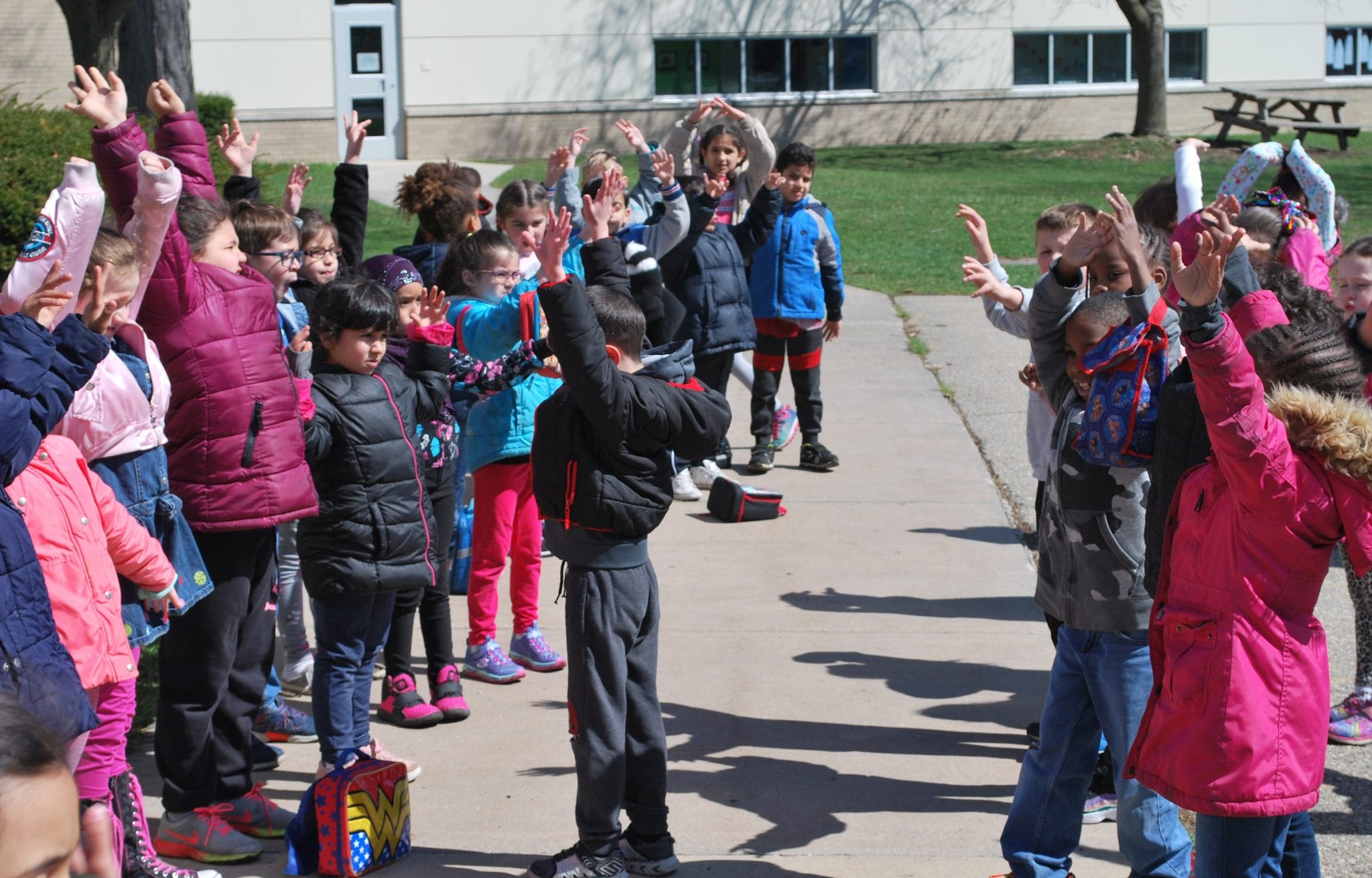Lunch recess has arrived, and McDonald Elementary students race out to the playground. Many clamber onto the equipment, but others line up for Four Square or other popular games.
At first glance, it looks like a traditional recess scene, but closer inspection shows something different.
When a student gets out at Four Square, instead of teasing, her peers give her high fives and say “Good job.”
A disagreement about who’s turn it is on play equipment is quickly settled with a game of Ro-Sham-Bo (adults know it as rock-paper-scissors), and like that the kids are back at play.
At the end of recess, students do some quick breathing exercises and quickly transition from rambunctious play to a more ready-to-learn focus.
Welcome to the world of Playworks – a program that encourages kids to be physically active while also teaching them to include their peers and peacefully resolve conflicts.
Nine Dearborn elementary schools now use Playworks to teach children the art of play, including how to get along with others. Becker, Geer Park, Maples, McDonald, Nowlin, River Oaks, Salina Elementary, Snow and Whitmore-Bolles all use the program.
McDonald Elementary was an early adopter for Playworks in Dearborn.
“We love it!” said Principal Amy Modica. “It has really brought positive play and including everyone in play.”
A coach from the Playworks organization visits the school one week a month to teach students and staff new games, chants and more. Key staff, including the gym teacher and playground supervisors, are trained in the program. Older students also can become junior coaches and grow their leadership skills.
All the Playworks games are inclusive and encourage positive behavior.
“We did not structure recess,” Modica stresses. Children can decide if they want to join a game or play on the equipment with friends.
But the games mean there is a way for every child to join in an activity and reduces the chances of hurt feelings or students being excluded.
Students are also taught methods to resolve conflicts, such as rock-paper-scissors, so situations do not escalate and adults are not needed to solve disagreements.
“The amount of instructional time that little game saves is amazing,” Modica said. Children carry that conflict resolution into the classroom. Now, kids can work out on their own small issues like who gets the computer first so teachers do not need to be involved.
In a survey, McDonald teachers said that that Playworks had made students more physically active, more inclusive to other students, and better able to resolve their own conflicts. In class, the program has led to more cooperation between students, better participation and increased focus.
Teaching kids how to play may seem silly, but it is needed, especially in this technological age, said Snow Principal Amal Alcodray.
“I went to Dearborn Public Schools, and I loved Four Square,” Alcodray said. However, her own students did not know the game until it was introduced through Playworks, which Snow started this year.
Today’s children spend their free time indoors staring at devices, Alcodray said. Playworks teaches them not only the games to play, but how to interact so everyone is included in the fun and conflicts are avoided.
It has taken a few months, but Snow is starting to really see the benefits of Playworks.
“It’s a great opportunity. I love it,” Alcodray said.

